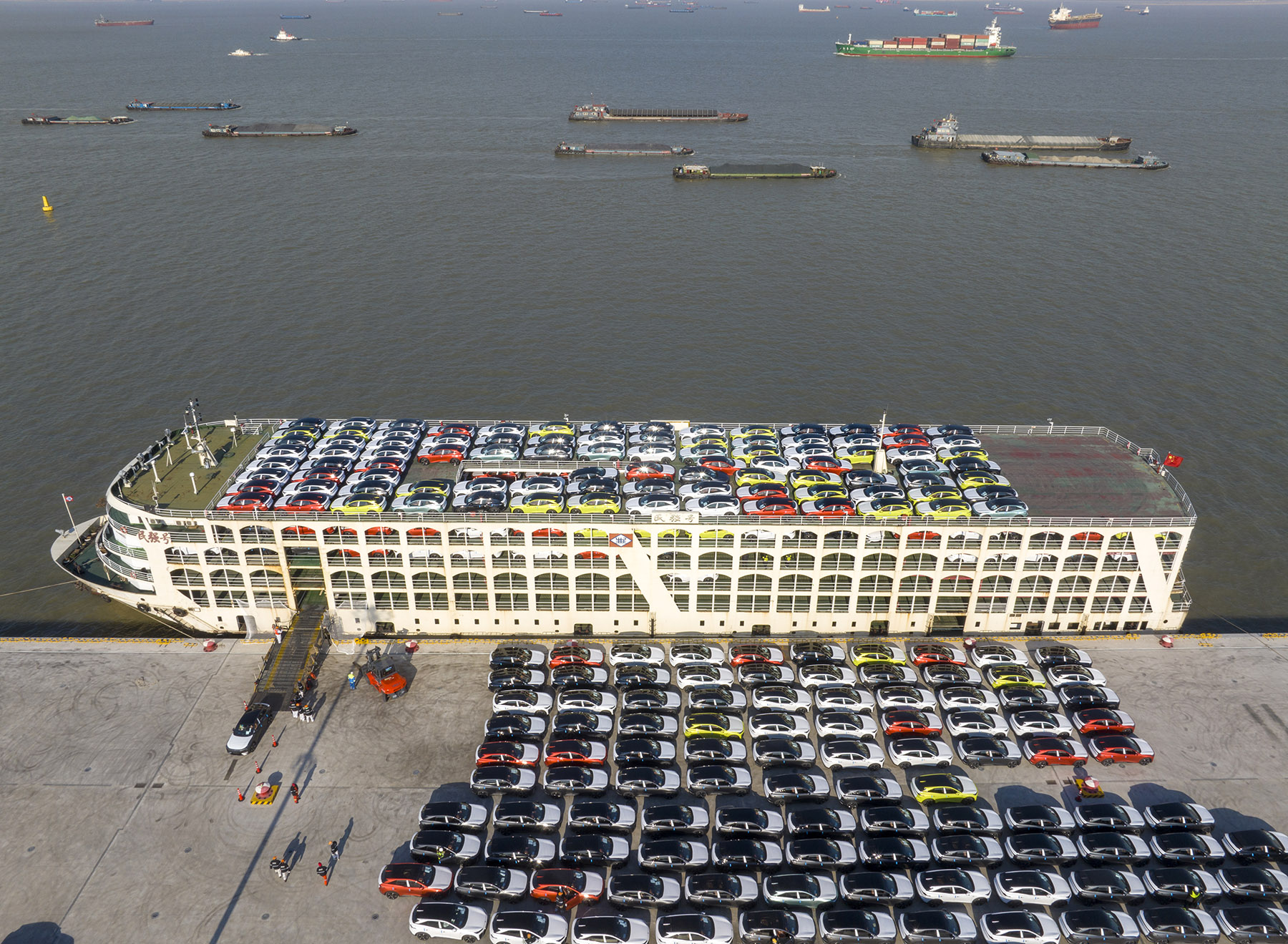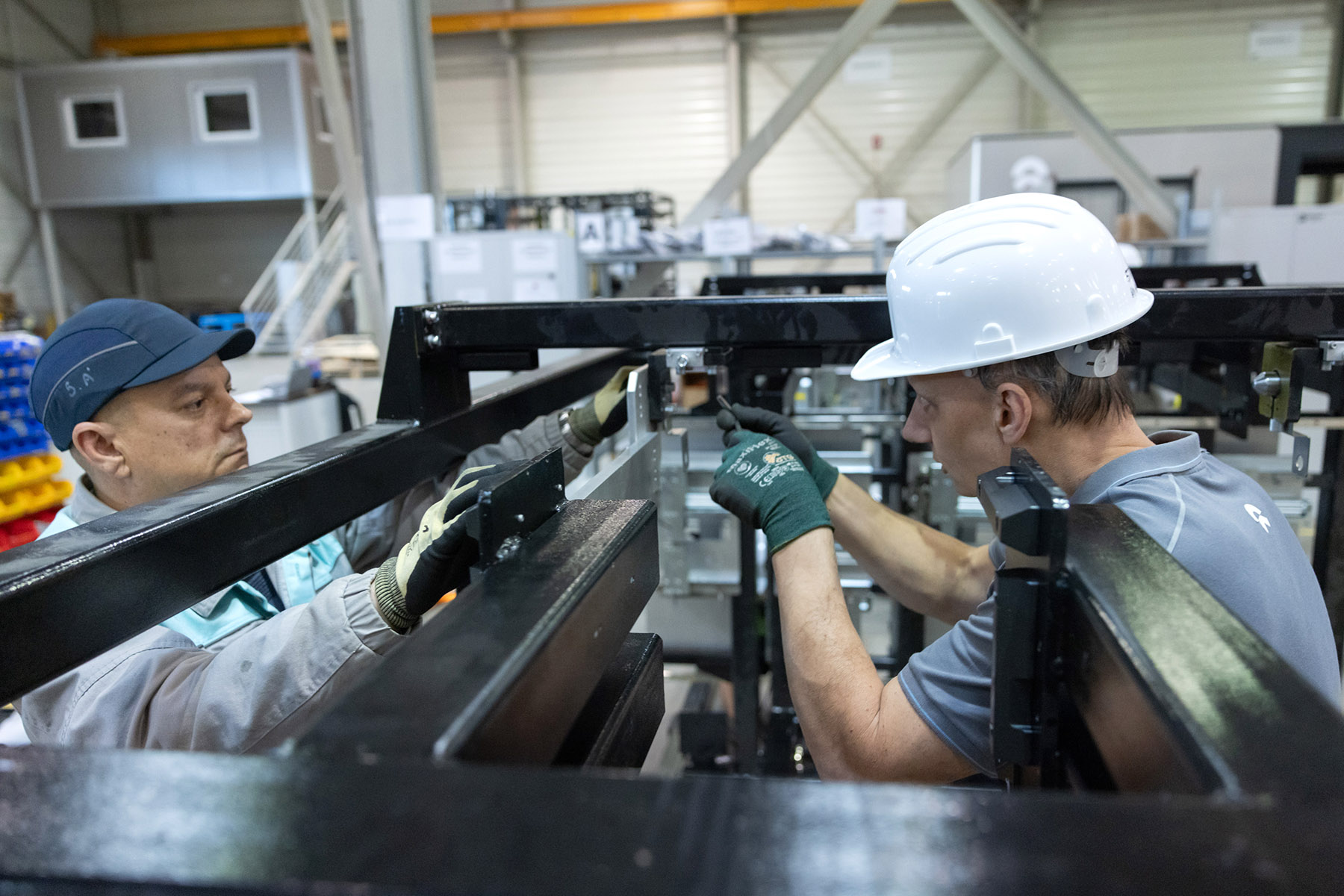Experts see US actions as failed policy that is likely to backfire

Editor's note: The United States has announced that new tariffs will soon be imposed on Chinese imports such as electric vehicles. China Daily examines experts' concerns over the adverse effects such action may have on US consumers and others, and on climate change objectives.
Steep tariff rises by the US on Chinese electric vehicles and batteries are likely to backfire, hurting consumers and companies and hampering climate goals, experts say, even though the stated goal is to protect US manufacturing jobs.
On May 14, US President Joe Biden directed the office of the US Trade Representative to increase tariffs on $18 billion worth of Chinese goods, including electric vehicles, lithium-ion batteries, semiconductors, solar cells, medical supplies and certain critical minerals and metal products, after reviewing existing tariffs under Section 301 of the Trade Act of 1974. The office announced last week that the changes will take effect on Aug 1.
The greatest increase applies to Chinese-made EVs, with tariffs rising from 25 percent to 100 percent. However, the practical immediate impact of this measure is minimal because there are few Chinese EVs in the US market.
READ MORE: Foreign markets eager for Chinese-built cars
More concerning for the industry is an increase in tariffs on Chinese EV batteries and parts, from 7.5 percent to 25 percent. This directly affects US EV makers such as Tesla and Ford, who rely on Chinese lithium iron phosphate batteries for some models.
The tariffs are likely to result in higher prices for EVs and batteries for US consumers, said Soody Tronson, an IP law expert in Silicon Valley, California, with a focus on the energy sector.
"The lack of competition will likely result in price increases. We have to consider how these tariffs affect everyday Americans."
Tronson pointed to the potential negative impact on Biden's climate goals. The administration has said EVs are central to its climate change strategy, and restricting access to EV battery technologies, in which China leads the world, may slow the US transition to clean energy.
Tronson highlighted the technology to extract metals such as lithium, cobalt, manganese and nickel from old EV batteries and recycle them into new EV batteries.
China has more than half the world's battery and production scrap and leads in preprocessing and material recovery capacity, a recent Bloomberg report said, citing the consultancy Circular Energy Storage in London.
China has been able to produce electric cars with recycled batteries at scale and dominates in battery recycling, thus making them doubly green.
Gordon Johnson, the founder of GLJ Research in New York, called the 100 percent tariff on Chinese EVs "purely political".
"There are virtually no Chinese EV cars imported into the US, so the tariffs on Chinese EVs are clearly, simply virtue signaling from Biden to try to look tough on China in an election year. I liken it to throwing a paper towel into the ocean to try to dry it out."
Some academics have also expressed frustration over the White House action.
"All the evidence is very clear that the tariffs hurt American businesses and American consumers," said Anthony Moretti, head and an associate professor in the Department of Communication and Organizational Leadership of Robert Morris University in Pittsburgh.

Mounting frustrations
"And the frustration that I have, and I'm not alone in this, but the frustration that I have with this is that it's a policy that does not work. And so why continue?"
The Biden administration has made it clear that it wants more and more people to drive electric vehicles to reduce the use of fossil fuels and to help in the fight against climate change, Moretti said, and now "the best affordable EVs on the market come from China".
"It seems incompatible to, on the one hand, say we want people to drive electric cars but to then turn around and say we're going to deny them access to some of the most affordable ones. I think it's a failed policy," Moretti added.
Gernot Wagner and Conor Walsh, economists in the Business School at Columbia University in New York, echoed this view. They suggested in an article in The New York Times that despite the official justification of protecting US manufacturers, the real aim is to appeal to voters in states such as Michigan, Pennsylvania and Wisconsin that will be critical in the presidential election in November.
However, the tariffs will ultimately hurt middle-class consumers by limiting access to affordable EVs, they said.
"With more cash and better credit, wealthy Americans are the only ones who can afford the electric vehicles currently on the market, which cost more than $55,000 on average. Middle-class Americans should have access to these cars, and because of these tariffs they will remain a luxury, available mainly to the rich."

Sourabh Gupta, a senior fellow at the Institute for China-American Studies in Washington, echoed the view that the move is for election purposes.
The US made the review findings of Section 301 public "this late "because their aim is political, he said.
"Only bad news was going to come out of the process."
Adding another layer of controversy is the potential violation of World Trade Organization rules, said Donald Lewis, an international trade law expert and a nonresident research fellow with the Center for China and Globalization.
"Governments should abide by their tariff bindings under the General Agreement on Tariffs and Trade, so you cannot raise tariffs above a particular level once the tariffs are set and each government agrees.
ALSO READ: Elon Musk opposes US tariffs on Chinese EVs
"Unfortunately, since the (Donald) Trump administration there have been massive violations of the treaty, and the Biden administration has followed suit. This is in violation of WTO law, which was established by the United States."
Moretti said that given the current political climate in Washington, "it is safe to continue to appear to be strong by doing something that hurts America" for the Biden administration.
"Ultimately, protectionism is a policy not of acting out of strength, but acting out of weakness."
Contact the writers at liazhu@chinadailyusa.com


